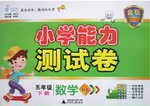题目内容
阅读理解:阅读短文,选择正确答案完成句子或回答所给问题。
I belong to a small film club(俱乐部)which meets at our village hall once a week.
There are about forty members, all of whom are interested in the history of the cinema.
The film society gives us the chance to see old films which are seldom shown in other places.
Last week, just before the Showing of a very old film, the club president(主席) said that John, our projectionist had suddenly fallen ill. He asked if any of us knew how to run the machine. A young man said that he would be glad to serve us, though he pointed out that it was already many years since he had shown a film.
Then he went into the box, and after turning here and there, the film started. We were all puzzled by the film as none of us could understand what was happening.
When the film was over, we asked the young man.“The film doesn't make any sense(意义)to us. What happened?”“I'm sorry about that,”said the young man,“I put the last part in first.
After it had been running for a few minutes, I realized that I had made a mistake, but I didn't know how to stop the machine.”
1.We had the film club to ________.
[ ]
A.study old films
B.get together for fun
C.enjoy all kinds of films
D.operate film machines
2.In the cinema a projectionist is needed to ________.
[ ]
A.work in darkness
B.see the film
C.operate a machine to show the film
D.stay there till the end
3.People didn't like the film because ________.
[ ]
A.it was too old
B.nobody had seen it before
C.it was shown in the wrong order
D.only the last part was shown
4.The young man made a mistake and he ________.
[ ]
A.could have corrected it
B.could not correct it
C.didn't know what was wrong
D.ran for a while
解析:
|
1.A 导解:对细节的考查,需要把握关键句“all of whom are interested in the history of the cinema”. 2.C 导解:词义猜测题。根据上下文来判断意思。projectionist为电影放映员的意思。 3.C 导解:事实细节考查题。大家不喜欢的原因是因为电影顺序不对。 4.B 导解:事实细节题。年轻人明知但不会停机。 |

 小学能力测试卷系列答案
小学能力测试卷系列答案
| |||||||||||||||||||||||||||||||||||||||||||||||||||||||||||||||||||||||||